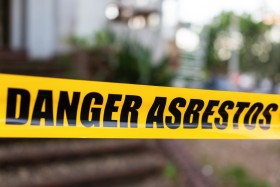What is a Toxic Tort?

Injuries can occur in many different ways. While many injuries are caused by a direct action, like falling on a wet floor, being bitten by a dog, a doctor’s mistake, or a car accident, some types of injuries and illnesses are caused by being exposed to something dangerous. Exposure to things like mold, asbestos, lead, and carbon monoxide, just to name a few, can potentially result in very serious illnesses. In those types of cases, they’re known as a toxic tort.
When toxic tort cases emerge, they most commonly involve exposure to dangerous substances either at home or on the job. In certain types of occupations, being around harmful substances is a routine part of the job. But just because it’s something that comes along with the job, that doesn’t mean employers are off the hook when it comes to safety. Employers still have a responsibility to make sure their workplace isn’t unnecessarily dangerous, which means taking reasonable steps to protect workers from foreseeable hazards. Mesothelioma cases involving exposure to asbestos is a very common type of toxic tort claim.
For toxic tort cases that involve exposure to something dangerous at home, mold is often the culprit. In the case of a newly built house, it might be the result of a contractor failing to take appropriate steps to prevent toxic mold from growing and spreading. Or perhaps a landlord neglected to address a mold problem in an apartment or house they were renting out.
Not all toxic tort cases involve exposure to things in the home or at work. In some cases, they can also involve medications that caused unintended side effects or consumer products that later proved to be dangerous in some way. For example, Roundup weed remover has gotten some attention in recent years due to lawsuits which argued there was a link between the product and people developing non-Hodgkin’s lymphoma.
One of the biggest challenges that comes with a toxic tort case is that the illnesses they cause often aren’t immediately apparent. If you’re injured by a piece of machinery at work, that’s an immediately obvious injury. But if you end up with an illness caused by prolonged exposure to something harmful in the course of your job, the symptoms can take years to develop. When this happens, the responsible party will likely try to argue that they aren’t liable for the illness or injury, or try to say that you can’t prove that they were responsible.
But even if you don’t show symptoms of an illness or injury until years later, you may still have legal options and it’s a very good idea to contact a personal injury lawyer to find out more about your situation. At Goodwin & Scieszka, you’ll be able to talk to a Michigan personal injury lawyer experienced in handling many different types of cases, including workplace accident claims and defective product claims. Contact us today to find out how we can help.
Image: iStock / georgeclerk






